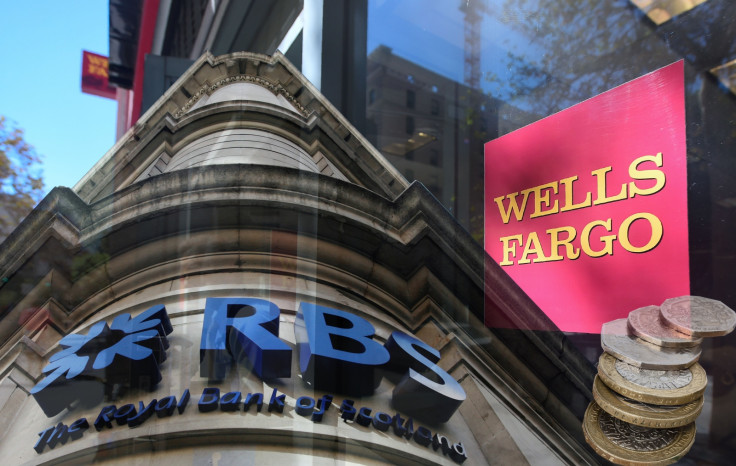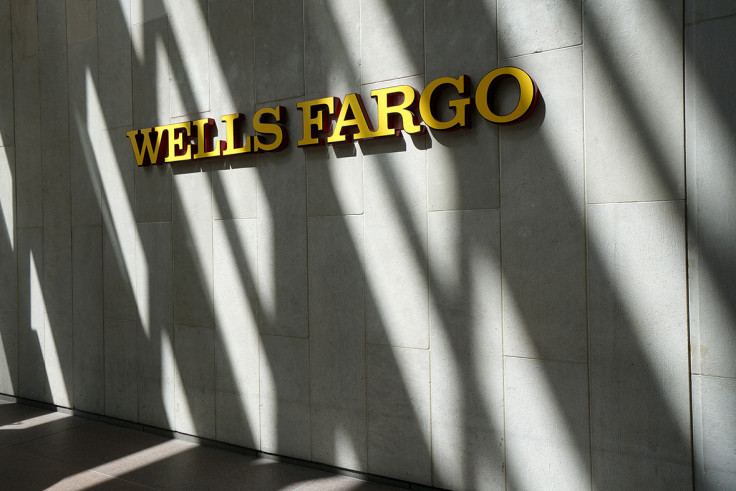Stuffing small businesses is latest banking malpractice fad as RBS and Wells Fargo show
Guilty parties and victims change, but unscrupulous practices in financial services lurk in the public consciousness.

Saying the big banks are at it again these days is akin to sounding like a broken record. Guilty parties change, so do the victims, but the core theme of unscrupulous practices within the financial services continues to lurk in public consciousness, and has done so since the dark days of the global financial crisis of 2008-09.
In September it was Well Fargo, in October its Royal Bank of Scotland. The latest victims, either side of the pond, happen to be small and medium enterprises. News has emerged courtesy of a BBC and Buzzfeed joint investigation that taxpayer-owned RBS allegedly stuffed many small and medium businesses by restructuring their deals or ramping up interest rates, and eventually purchased their assets on the cheap.
In the so-called "Project Dash for Cash", RBS' controversial turnaround division – Global Restructuring Group (GRG) – would allegedly target companies by giving them low valuations, pushing them to default on loans.
They would then be squeezed with interest rates and fees which would force the sell-off of assets to clear loans. RBS would also purchase stakes in these businesses or push them into administration.
It is reported that more than 12,000 companies were pushed into GRG after the 2008 crash. The size of the loans to these GRG customers had reportedly increased five times to more than £65bn ($80.62bn), between 2007 and 2012. It is alleged that the bank even targeted customers that had a poor relationship with the bank.
A sizeable chuck of the said customers can be described as what successive British chancellors, from Gordon Brown to Ed Balls, George Osborne to Philip Hammond, have labelled as the entrepreneurs and enterprises that keep the economy ticking in good times and bad. However, it seems a bank rescued by taxpayers did not get that memo from politicians entrusted with the nation's purse.
Of course, appalling as it why have a pop at RBS alone? Across the pond, for Wells Fargo – one of the few banks stateside to escape from the global financial crisis unscathed – even people's and businesses' identities are fair game.
The San Francisco headquartered "community-based financial services company" recently admitted it opened more than two million deposit and credit-card accounts for customers for which it "could not be confirmed to be appropriately authorised".

Staff at the bank were under pressure to hit high sales targets and many reacted by opening additional accounts for existing customers. That led to it being fined a record $185m (£142m) in September and accused of "widespread illegal practice" by regulators.
The US Senate Small Business Committee is presently investigating if any of the affected customers were American SMEs. Senator David Vitter, chairman of the committee, said: "Wells Fargo is currently managing $7.14 billion in small business loans – all of which is backed by taxpayer dollars.
"Considering the widespread, inherent culture of fraud and abuse that has been revealed at Wells Fargo, we need to know exactly how this rampant fraud impacted their small business clients and what actions will be taken to protect taxpayers."
Stuffing businesses at the smaller end of the spectrum is by no means limited to headline banking fraud. A case currently being heard at Southwark Crown Court suggests corrupt bankers and consultants took part in a loan scam that cost Halifax Bank of Scotland (HBOS) £245m; monies subsequently spent on prostitutes, luxury holidays and expensive gifts.
Six defendants are accused of conspiring to "take control of troubled businesses for their own gain", a charge they deny. The court was told that the six were involved in a racket led by another man, Lynden Scourfield, a former senior manager in the impaired assets division for HBOS, who is not on trial.

Scourfield is said to have encouraged struggling business customers within his banking portfolio to use the services of David Mills, a business consultant, and his company QCS, to act as a turnround adviser so the companies could obtain further bank lending. Huge sums were then advanced to the businesses by Scourfield even when it was "obvious" that the bank debt could never be repaid, said prosecutor Brian O'Neill QC.
Small business loan brokers have also long had their sanctimonious aura destroyed, but in 2013, one Virginia, US-based broker took dubious deals to a whole new level, according to Bloomberg archives. Joon Park pleaded guilty to using falsified documents to win $100m (£80.75m) in bank loans backed by the US Small Business Administration.
From 1998 until October 2011, he and other conspirators submitted SBA loan applications and supporting documentation to loan originators and underwriters on behalf of clients that contained falsified documents, such as bank statements altered to make it look like applicants had more cash to inject into a business than they actually did.
In some cases, Park and his cohorts had undisclosed ownership interests in businesses receiving loans. In others, loan applicants were unaware their financial or personal information was being falsified.
You can rest assured the aforementioned cases either side of the pond are not in isolation. Since the ignominious days of the US sub-prime mortgage crises, the financial services sector has had us chew over multiple scandals involving foreign exchange manipulation, payment protection insurance fraud, Libor rate-rigging, and more. Stuffing small businesses seems to be fast emerging as a competing malpractice fad.
Gaurav Sharma is the Business Editor of IBTimes UK. He has been a financial journalist for over 15 years, with a core specialisation in macroeconomics and commodities. Follow Gaurav on Twitter here.
© Copyright IBTimes 2025. All rights reserved.






















